Do you consistently wake up feeling drained despite a full night’s sleep? The to-do list looms, and anxiety constantly lingers, exacerbating fatigue. Modern life and its endless demands often leave us feeling overwhelmed, pushing our bodies to the limit.
All this chronic stress has compounding negative effects. It can affect our sleep, mental performance, and even create physical symptoms. Over time this can be detrimental to our work, relationships and general well being. Whilst diet and exercise are foundational in maintaining a healthy lifestyle, sometimes that’s not enough.
So what piece of the puzzle could we be missing? The answer: Adaptogens. Though they’re no magic cure, they can serve as a powerful supportive tool for resilience.
In this post we will explore what these ancient allies are, how they work, some of the most popular types, how to use them and some precautionary advice.
What Are Adaptogens?
The term ‘adaptogen’ might feel contemporary, but these plant-based compounds – found in specific herbs, mushrooms, and roots – boast a lineage dating back centuries, playing a key role in traditional healing systems like Ayurvedic and Traditional Chinese Medicine.
The hint to what they do is in the name – they help the body ‘adapt’ to various stressors – whether physical, chemical, or biological – by promoting a state of homeostasis.
The term “adaptogen” was introduced by Nikolai Lazarev in 1947 to describe substances that increase non-specific resistance to stress. It became a term to categorise these substances of similar effects. However, healers have been observing how these plants helped individuals maintain balance and energy throughout the trials of their lives long before this term was ever coined.
So how do these mystical substances achieve this remarkable feat? They do so by profoundly interacting with the body’s central response system: the HPA axis.
The Science of Stress & How Adaptogens Work
You’ve likely heard of the body’s ‘fight or flight’ response. If not, here’s a simple analogy:
Imagine you’re in prehistoric times, hunting for your meal. You come across a saber-toothed tiger – your body instantly floods with adrenaline and cortisol, heart rate increases rapidly, sharpening your focus, and diverting resources to muscles – preparing you to run or fight. This is known as fight or flight, and it’s an acute stress response, vital for our survival.
Nowadays we’ve solved the need to hunt for our meals, and we’re on top of the food chain. So our stress manifests in other ways.
That saber-tooth tiger now takes the form of a job you hate, looming deadlines, traffic, financial worries, you name it – there’s plenty for us still to get stressed about in this world. When that stress takes hold our bodies react, and without a physical release, we get stuck in a chronic stress loop.
This is where the Hypothalamic-Pituitary-Adrenal (HPA) axis comes in – it’s our body’s command center for stress.
It’s a complex feedback loop involving your hypothalamus (brain), pituitary gland (brain), and adrenal glands (atop your kidneys). When stress hits, the HPA axis kicks into gear, orchestrating the release of stress hormones like cortisol, leading to anxiety, depression and what I think of as the crippling, unshakable sense of constant impending doom. It’s not a fun feeling.
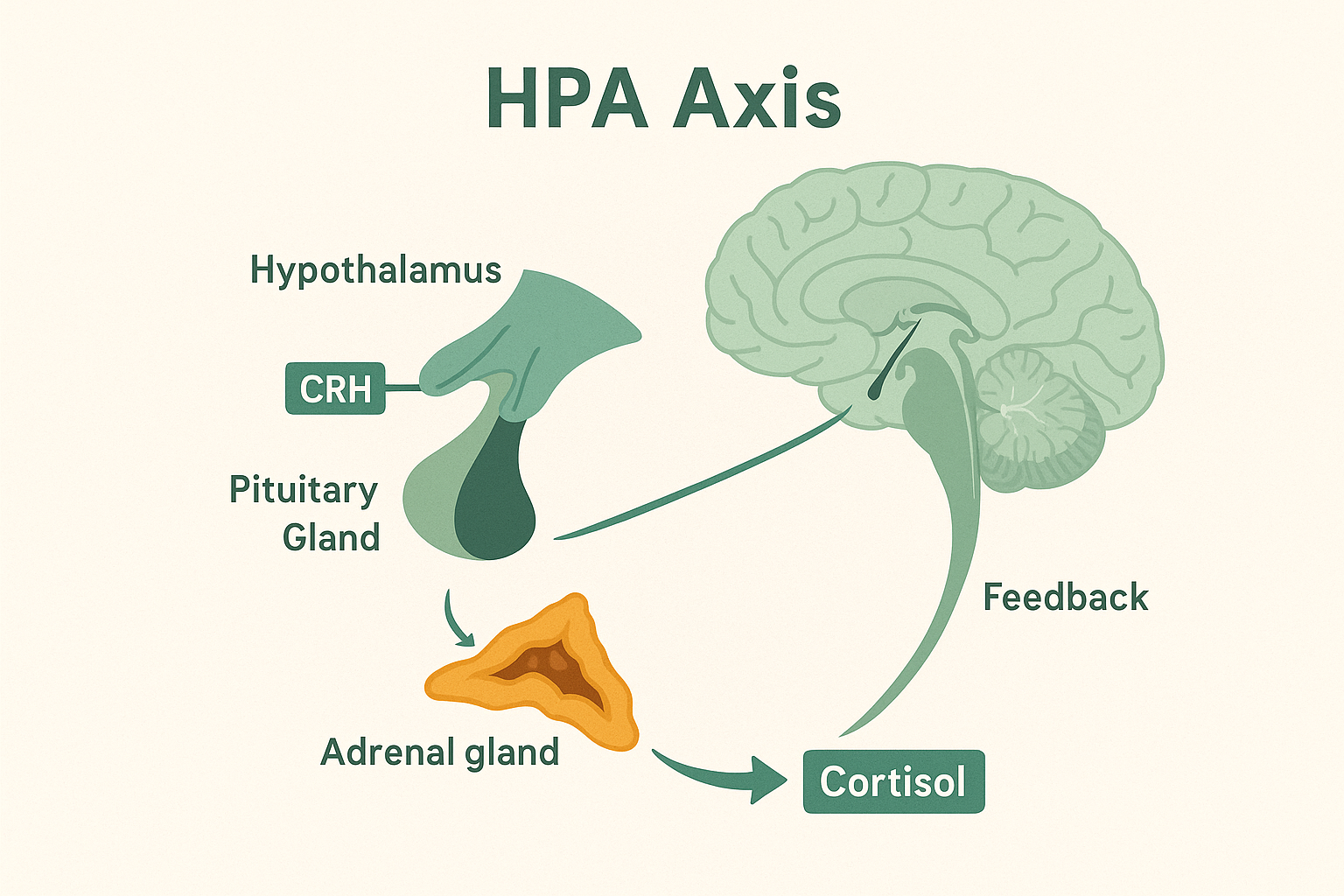
Adaptogens don’t suppress this natural response; instead, they act like intelligent regulators. They help ‘modulate’ the HPA axis, gently nudging it back towards balance. They can dampen overactive stress responses during periods of high demand and bolster it when you’re feeling depleted, ensuring your body doesn’t overreact or underperform under stress.
Adaptogens have non-specific actions, meaning they help the body adapt to any stressor, making them unique. It’s important to note that these substances aren’t quick-fixes. They have a gradual and cumulative effect. Results typically manifest over weeks, not days.
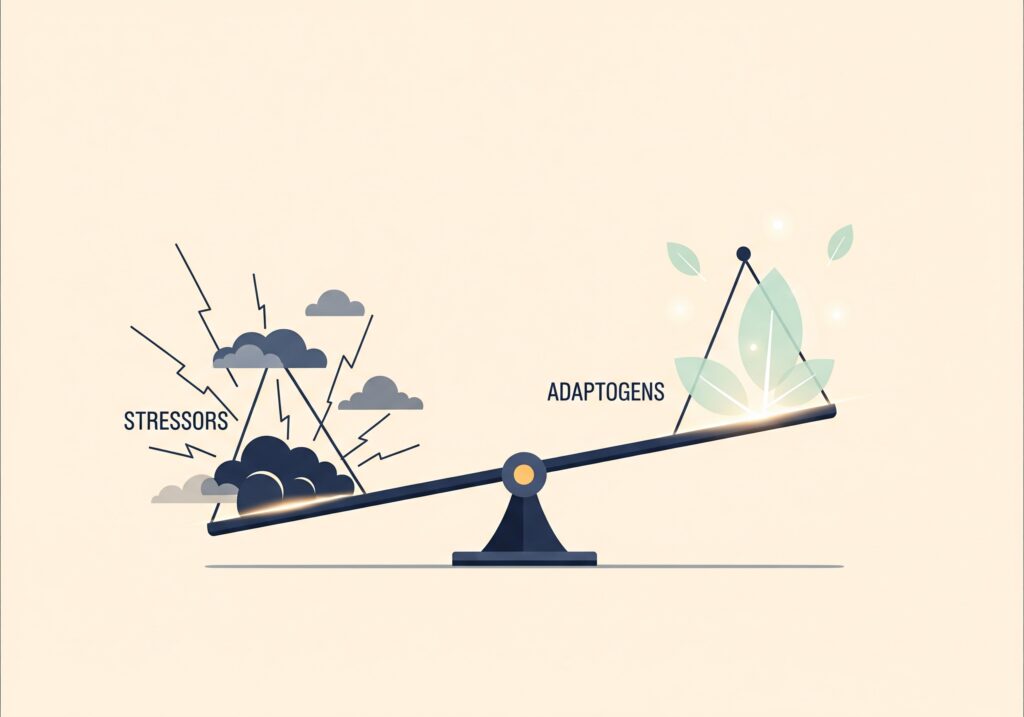
Key Adaptogens: Your Natural Allies
With dozens of recognized adaptogens it can be a little overwhelming knowing where to start. Each plant offers a unique profile of benefits, working in synergy with your body. Below is a list of some of the most well-researched, readily available and popular choices to consider.

Ashwagandha (Withania somnifera):
Perhaps the most well-known, Ashwagandha is celebrated for its profound ability to reduce cortisol levels, making it a powerful ally against chronic stress and anxiety. It also significantly improves sleep quality, enhances cognitive function like memory and reaction time, and even supports immunity. A cornerstone of Ayurvedic medicine, it has been traditionally used for overall vitality and calming the nervous system.

Asian Ginseng (Panax ginseng):
Often called the ‘king of herbs,’ Asian Ginseng is a potent energizer, renowned for boosting physical and mental performance, improving alertness, concentration, and memory. Research supports its role in metabolic health, blood sugar regulation, and even enhancing libido and testosterone. It works by supporting cellular energy production and modulating neurotransmitter activity.

Tulsi (Holy Basil – Ocimum sanctum):
More than just a fragrant herb, Tulsi is a revered adaptogen known for its gentle yet powerful stress-relieving properties. Considered sacred in India, it’s been used for centuries to promote spiritual and physical well-being. It supports a healthy immune system, aids metabolic balance, and offers anti-inflammatory benefits, even contributing to respiratory and oral health.
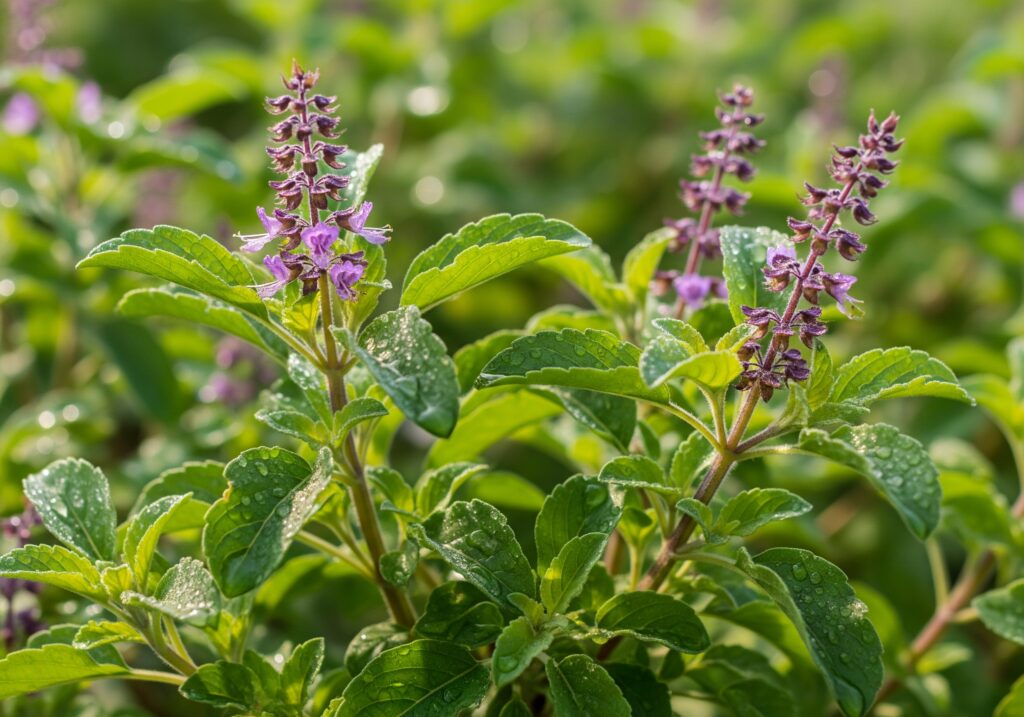
Cordyceps (Cordyceps sinensis/militaris):
This unique mushroom has gained significant attention in the athletic community in recent years. While research can be varied, many studies point to its potential to boost ATP (cellular energy) production, thereby improving athletic performance, stamina, and reducing muscle fatigue. It’s also explored for its immune-modulating, anti-inflammatory, and antioxidant properties.
While some early studies have mixed results, the growing body of evidence, especially in human trials, increasingly supports its benefits for exercise performance and overall vitality.

Turmeric (Curcuma longa):
More than just a spice, Turmeric, particularly its active compound curcumin, is a powerhouse anti-inflammatory and antioxidant. It’s widely used for joint health, pain reduction, boosting immunity, and supporting digestive and cognitive function.
Its adaptogenic qualities stem from its ability to help the body manage inflammation, a key stressor. It’s important to note that turmeric is best consumed with black pepper (piperine) to enhance absorption & increase bioavailability.
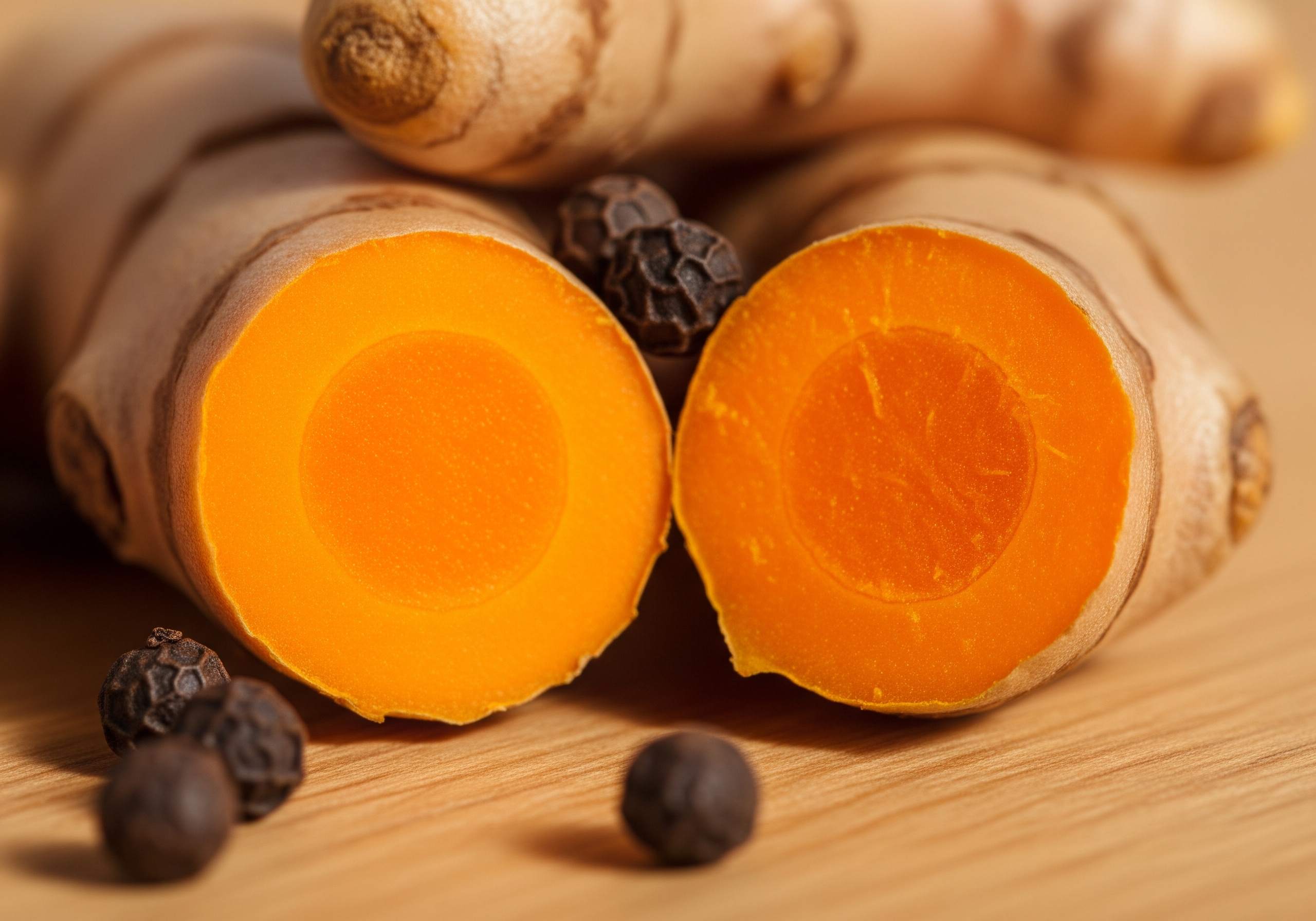
Rhodiola Rosea (Golden Root):
Excellent for combating fatigue and burnout, especially related to mental stress. It’s known for it’s antioxidant effects, immune system support, improved focus, and endurance, making it popular for those with demanding intellectual work or high-stress jobs and even athletes. It can also enhance mood!
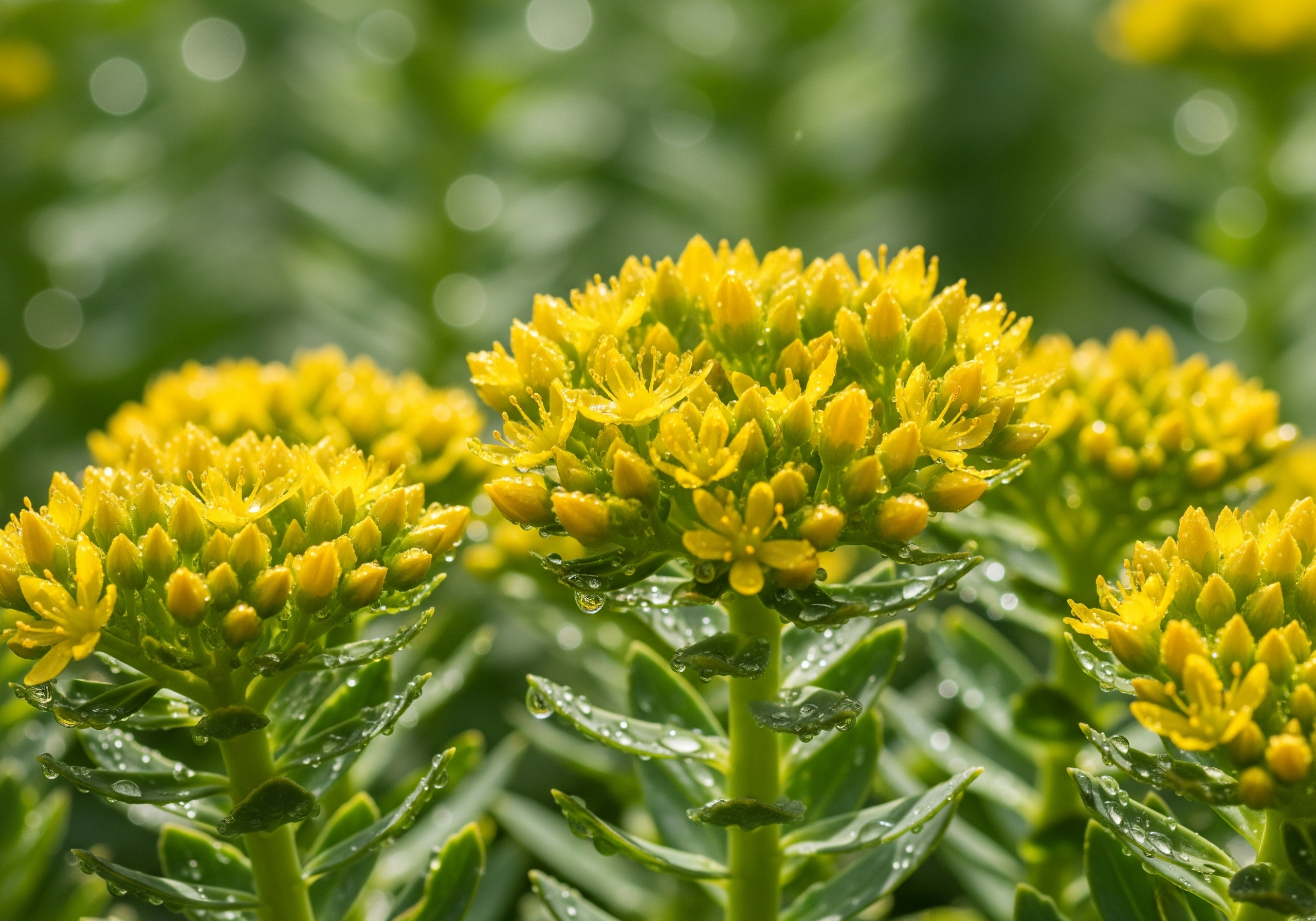
Reishi Mushroom (Ganoderma lucidum):
Often called the ‘Mushroom of Immortality,’ Reishi is known for its calming, immune-boosting, and anti-stress properties.
It helps promote relaxation, improve sleep quality, and supports overall vitality. It helps to restore balance as opposed to being a stimulant.

How to Safely Add Adaptogens Into Your Daily Routine
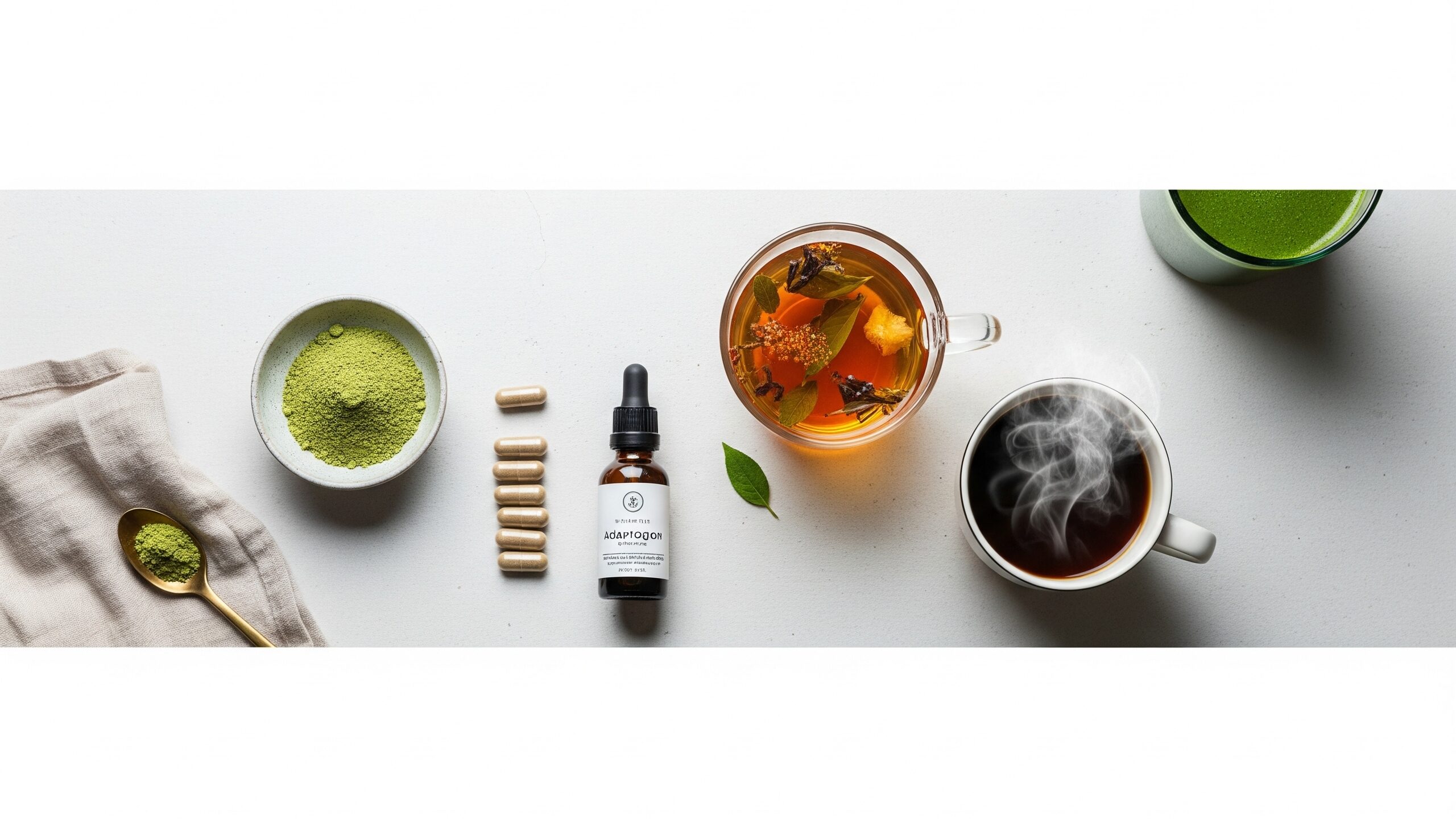
Remember, adaptogens are not immediate fixes. Some may give you a more instant, stimulative effect such as ginseng, which tends to give me more energy and focus. But generally their strength lies in consistent, daily use. Expect to notice subtle changes and improvements over 2-6 weeks, as your body gradually rebalances.
Start slow and listen to your body. The golden rule of adaptogen integration is to introduce one at a time. This allows you to accurately gauge its individual effects and how your body responds. Some individuals might be more sensitive to certain compounds, so starting with a lower dose and observing for a few weeks is crucial before considering another.
One of the great advantages of adaptogens is their versatility in consumption. Whether you prefer the simplicity of capsules or tablets as part of your daily supplement routine, the blendability of powders in smoothies, lattes, or protein shakes, the potency of tinctures or liquid extracts, or even the comforting ritual of adaptogenic teas and tonics – there’s a form to fit every lifestyle. Don’t forget culinary uses for roots like turmeric – enjoy that curry!
Important Considerations and Disclaimers
The efficacy of adaptogens is heavily dependent on product quality. Always prioritize organic, third-party tested supplements. Research brands thoroughly, looking for transparency in sourcing and manufacturing. Avoid products with fillers, unnecessary additives, or unverified claims.
While generally safe, adaptogens can interact with medications or have contraindications for certain health conditions. Always consult your healthcare professional before adding adaptogens to your routine, especially if you are pregnant, nursing, have a pre-existing medical condition, or are taking other medications. This is crucial for your safety and to ensure they are the right fit for your individual needs.
Conclusion
Adaptogens offer a natural and powerful pathway to greater resilience, focus, and emotional balance in a perpetually demanding world. By gently supporting your body’s innate ability to handle stress, they can help you feel more grounded, energized, and, truly, ‘never better’.
Embrace them as part of a holistic wellness strategy, alongside a healthy diet, regular exercise, and stress management techniques.
Are you ready to explore the world of adaptogens? Which one resonates most with you? Share your thoughts and experiences in the comments below, and don’t forget to subscribe to ‘Never Better’ for more insights into living your most resilient life!
Be sure to follow me on Threads & X @neverbetterhealth for more health insights!